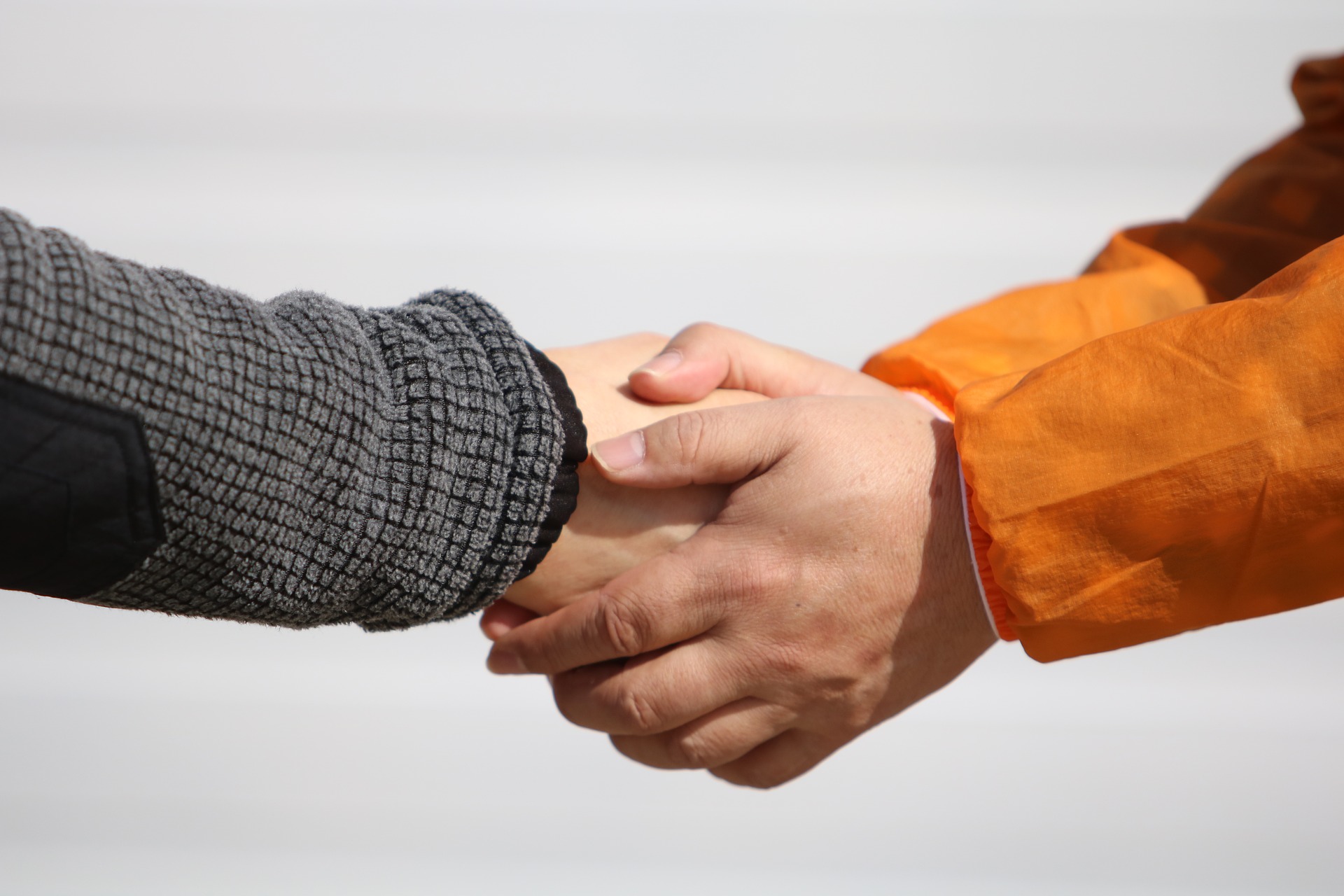Once I was watching a scene in a hairdressing salon:
– Hi! (the girl, obviously, familiar with the master, entered the hall) – I was passing by when I decided to drop in and straighten the tips of my hair, are you free now? (having received the affirmative answer, she has fallen into a chair and closed her eyes waiting for result of the master’s work ).
– It’s done! (master removed the cape deftly and a girl saw the curls, cut and laid accurately .
– Oh, how great! You are virtuoso, as always!.. Only I’m broke today. Would you mind if I bring money the other day?..
Mute scene… Simultaneously confused and disappointed hairdresser’s face is more eloquent than any words. Meanwhile, the client, pleased with herself and life, as if nothing had happened, flew out of the room.
Probably each of us at least once in life faced with such a behavior of someone from surroundings. And what do we feel about it? As if we were «used», that is have received benefit at our expense, at the same time nobody asked our consent. You can certainly find a more acceptable word – «manipulation», but the meaning remains the same.

Who is it: the person – «manipulator», and what underlying motives are driven by his behavior?
In one ordinary family lived a girl. She had mom and dad. And, it seems, her life was usual child’s life too. UNTIL her younger brother was born. By then the girl started to understand something about parental love and at some point she realized that exactly this love just wasn’t enough for her. How did she realize it? She just watched and compared how many toys she had and how much her little brother has, with what tender look mother looks at the son and hardly notices her… And then the jealousy arose in the girl’s heart (quite frequent phenomenon in families where parents don’t have enough wisdom to distribute attention between children). And having been born once, this jealousy hasn’t disappeared anywhere. She lived together with a girl who became more older and imperceptible to her really influenced her life…
How does the process of a growing happen and what are its signs? Now the term “infant” or «infantile behavior» is in fashion. What does it mean? Referring to the Wikipedia, «infant (from the Latin. infans – child) – is a title of princes and princesses of royal houses of Spain and Portugal (before the liquidation of the Portuguese monarchy in 1910), except successors of a throne.
From the XIV century in the kingdoms of Aragon, Castille, Leon and Navarra only successors of a throne were called princes and princesses, the other children of the Royal couple received a title of infant.
The word «infant» in the romance languages means «child», and it was designated that these children were sons and daughters of the monarch».
In popular speech it is accepted to understand infantile behavior as irresponsible. After all, one of the most obvious differences between childhood and maturity is the ability to make a choice and take responsibility for it. Considering historical information from Wikipedia, it is possible to see in infantilism a certain claim – why someone is the prince, and I’m just «infant»? Thus, the person-infant allocates itself with over-expectations, say, I destiny deprived initially, and now you, all people around, are obliged to make it up to me. How? Satisfying my needs, whether you want it or not! At the same time feelings and needs of people around aren’t considered at all.
And here, the communication of «Infant» or «manipulator» with people happens according to such scheme: the attraction of people who are willing to «serve» into field. Usually, «infant» – is such a nice fellow with a certain charisma, which is all but impossible to refuse. Only the consequences for «victim» are always the same-an unpleasant deposit in soul from the fact that you had acted contrary to your own interests and needs.
It is interesting, in my opinion, to consider, who are they, these potential victims of manipulators? Most often, it is people with a so-called «guilt complex». And exactly this guilt looks for the compensation in communication with the manipulator. How does it happen?
According to Bass-Darki’s scale, sense of guilt is one of the aggression forms. Only this aggression is directed to itself, so-called autoaggression. How does it appear? One of the reasons is the conscious or unconscious prohibition on the expression of aggression outward: and then, without having found a way out, this aggression is directed at the person-victim. Such a person is prone in all «blame» but yourself. And, as it is known, any fault looks for punishment. And communication with the manipulator becomes that unconscious punishment.
Anyone who dealt with manipulators, knows how difficult it is to get out of the sphere of their influence. The manipulator has a lot of techniques to keep the person in the power – from child’s helplessness («I feel so lonely, nobody loves me») to direct threats of suicidal nature («You were the last hope, the only thing is left- to jump out of a window»). Of course, who wants to be responsible for the death of another person? The only secret is that to commit suicide or not is the choice of the person itself, and NOBODY can bear this responsibility for it. Sounds severely, but it’s true. Even the criminal Code of Ukraine tells us that bringing a person to commit suicide or to attempt at suicide can be considered cruel treatment, blackmail, compulsion to illegal actions or systematic humiliation of human dignity. There is no word about outstanding requests. Legally everything is clear, but what about internal guilt which doesn’t submit to reason. There is one sure remedy – the internal work, preferably under the guidance of an experienced psychotherapist. It is known from practice what ease and freedom is felt by the person who has realized that sense of guilt can be viewed in a positive way as a premise of conscience. At the same time understanding the causes of fault and therapy of the relations in which the fault has appeared is obligatory.

And what can help the manipulator? His model of the relations with the world is obviously destructive. The matter is that you can only help someone who asks for this help. And manipulator has too many secondary benefits from his behavior. At first glance, it seems that infantile behavior is very profitable and attractive. But it is wrong impression. The most important trouble of the manipulator is his dependence on others. This person constantly needs someone who would satisfy his needs. The unhappy inner child, who lacked parental love, always rages in the manipulator. Only it is a child’s position – a position of idealization of parents and the world in general. And in order to come closer to reality, the psychotherapeutic help is needed. Only whether will he accept this help or not?
Author Natalia Tarasenko
Translator Darina Mishina
Original text Манипулятор и его жертва. Связаны ли они навсегда?








